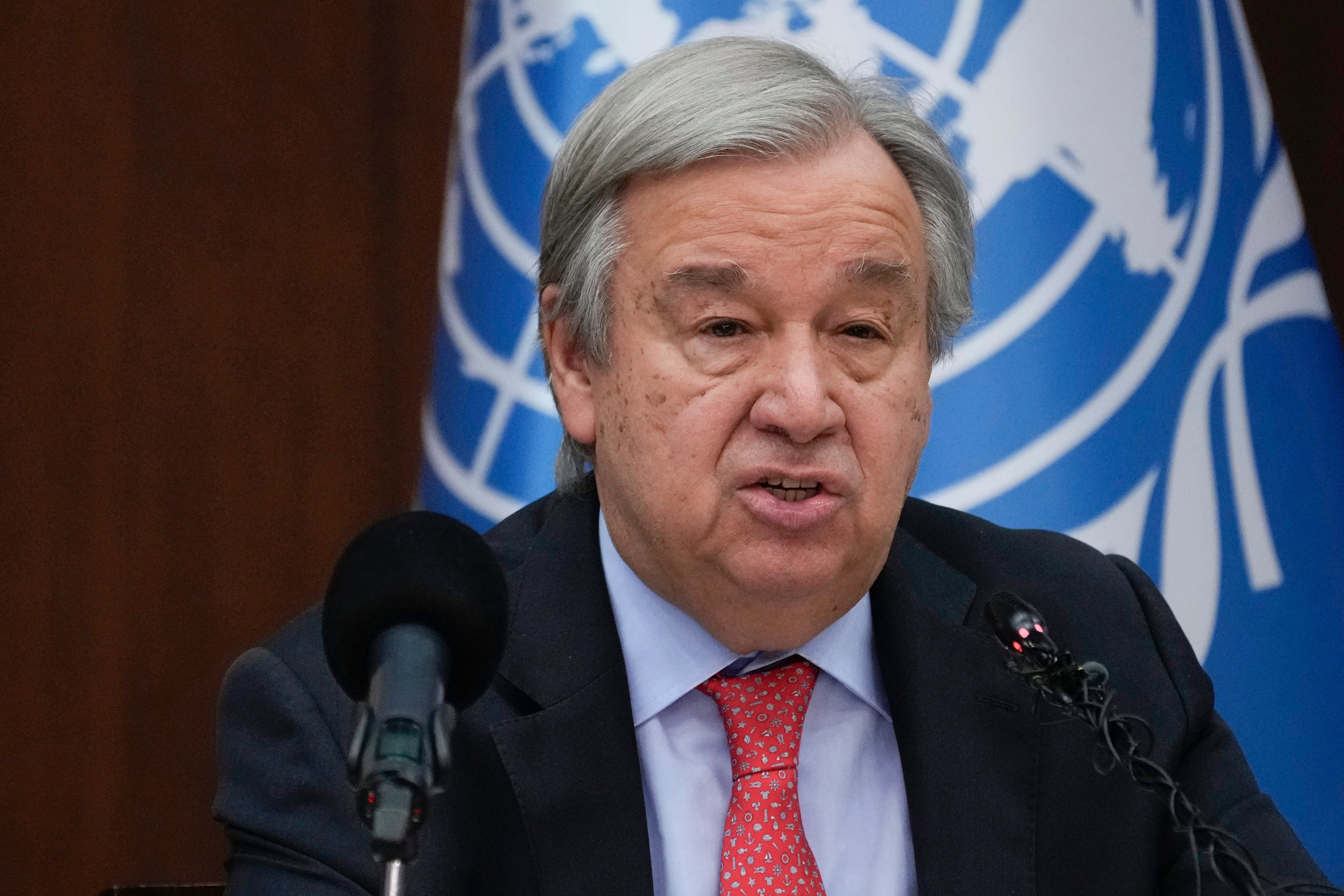UN chief urges 'game-changing' commitments on clean water
The United Nations chief is urging the first world conference on water in more than 45 years to address the “21st century emergency” that is wasting the world’s most important resource and has left billions of people without clean water and basic sanitation

The United Nations chief urged the first world conference on water in over 45 years on Wednesday to address the “21st century emergency” that is wasting the world’s most important resource and has left billions of people without clean water and basic sanitation.
Secretary-General Antonio Guterres told the opening session that water is “humanity’s lifeblood” and a human right, but the world is draining it “through vampiric overconsumption and unsustainable use and evaporating it through global heating.”
In a challenge to all nations and the broader international community, he said the three-day conference must represent “a quantum leap” in recognition of the vital importance of water and the need for action to ensure its sustainable use.
Guterres called for “game-changing commitments” toward U.N. goals, including ensuring that all people have access to drinking water and sanitation by 2030.
The U.N. World Water Development Report, issued on the eve of the conference, says 26% of the world’s population — 2 billion people — don’t have access to safe drinking water and 46% — 3.6 billion people — lack access to basic sanitation. U.N. research also shows that almost half the world's people will suffer severe water stress by 2030.
The U,N. secretary-general called for major investments in water and sanitation systems and efforts to address climate change, stressing that “climate action and a sustainable water future are two sides of the same coin.”
According to conference organizers, such commitments will be the key outcome of the conference. Already, more than 500 commitments have been registered from governments, U.N. agencies, business leaders and civil society, they say.
Just before the conference opened, U.S. Ambassador Linda Thomas-Greenfield announced a new commitment from the Biden administration, of $49 billion to be put toward "equitable, climate-resilient water and sanitation investments at home and around the world.”
She said the new U.S. funding “will help create jobs, prevent conflicts, safeguard public health, reduce the risk of famine and hunger, and enable us to respond to climate change and natural disasters.”
But the U.S. envoy stressed the need for global cooperation and urged the U.N. Security Council to take up the issue of water scarcity, which exacerbates conflicts and disrupts peace and security.
The U.N. Water Conference is co-hosted by King Willem-Alexander of the Netherlands and Tajikistan’s President Emomali Rahmon. There are 171 countries, including over 100 ministers, on the speakers list.
Rahmon said Tajikistan has abundant drinking water, although 1,000 of its 14,000 glaciers have completely melted in the last few decades. Noting that the last U.N. water conference was held in 1977 in Argentina, he proposed holding the next one in Tajikistan in 2028 to monitor implementation of the commitments being made during the current meeting.
Willem-Alexander stressed that over the next three days “we went to get the water wheel spinning” and ensure that the alarming state of the world's water resources is given a high place on global agendas.
“Water security is one of the defining concerns of our time and it will determine our collective sustainable future,” the Dutch king said.
Bookmark popover
Removed from bookmarks